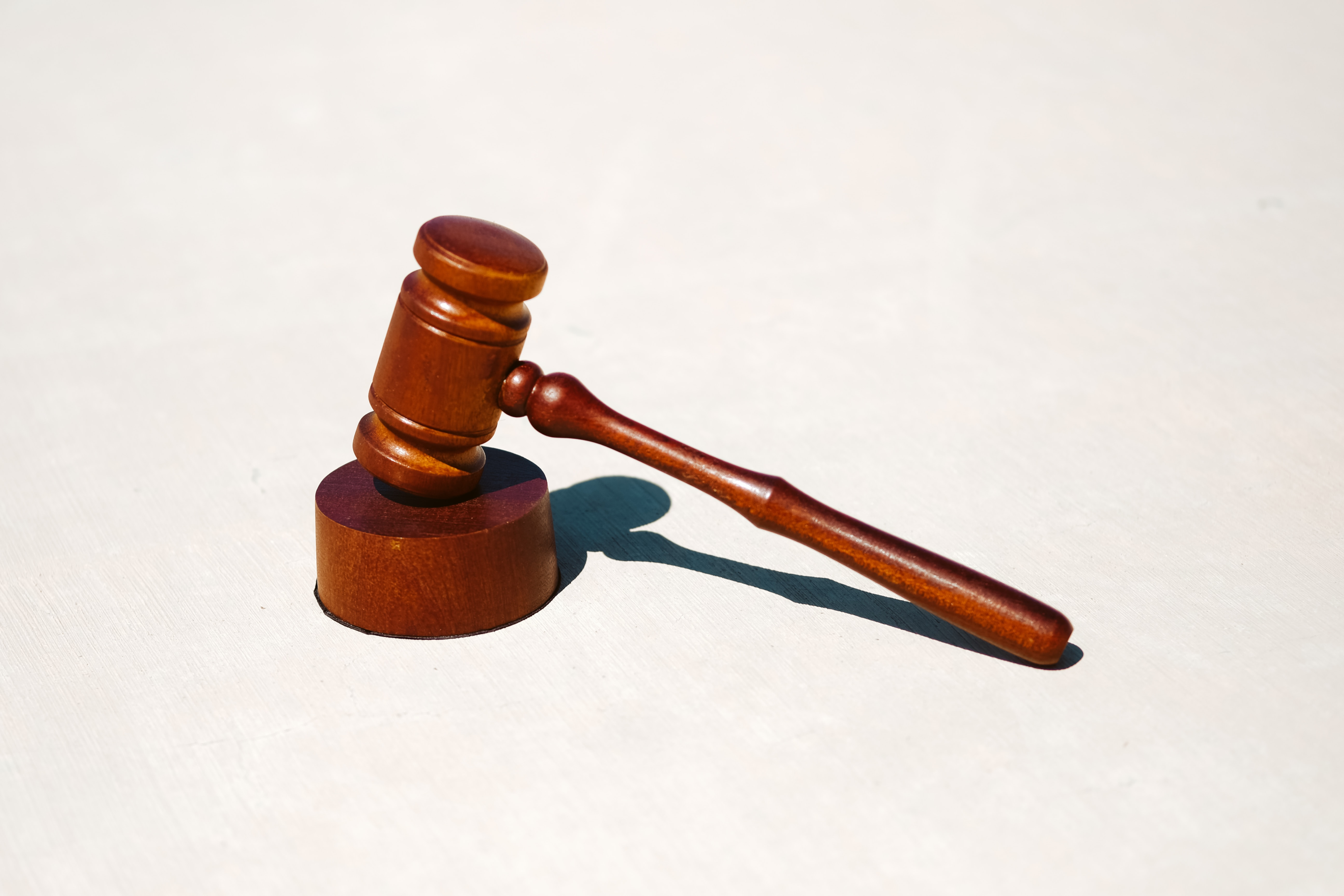Over the past 2 decades, data has become the primary driving force behind all marketing efforts. From big corporations to small businesses, every entity relies on gathering meaningful customer data to tailor their offerings.
At the same time, data protection laws have made their way into federal legislation as misuse of data is a serious concern. Sensitive data in the wrong hands can wreak havoc in an individual’s life. From identity theft to financial crime, many illicit acts are powered by data.

What I’m trying to establish is that data privacy regulations are more important now than ever. The efforts must spill into marketing automation as well to protect consumer privacy. In this post, I’ll delve into the basics of data processing activities and how modern data privacy laws are designed to aid in the matter.
GDPR & HIPAA – The 2 Major Regulations for Data Collection
Different countries have different laws to maintain compliance, GDPR and HIPAA are the global standards.
To be more precise, marketing software platforms developed for the US market must be HIPAA compliant while tools targeted to the EU market must be compliant with GDPR.
And marketing automation tools that cater to both regions must be compliant with both regulations. Let’s dive into more details to understand these data privacy regulations better.
What is GDPR?
GDPR stands for General Data Protection Regulation, a set of laws introduced by the European Union in 2018. The primary goal of GDPR is to allow EU citizens more control over their digital data and regulate companies that handle the stored data.
To understand GDPR better, you first need to understand who a data controller is. Any independent or employed individual who decides why and how personal data will be processed is classified as the data controller. All data controllers must adhere to the GDPR guidelines and are accountable for ensuring data protection.

It’s critical for the data processor to ensure GDPR compliance. Otherwise, the associated entity can be fined up to 4% of the annual revenue. Google holds the record for paying the largest fine due to GDPR compliance failure, a whopping €50 million back in 2018.
The set of laws that drive the GDPR accountability act is primarily based on the definition of personal data by the EU. According to the official GDPR.eu website, “Personal data is any information that relates to an individual who can be directly or indirectly identified. Names and email addresses are obviously personal data. Location information, ethnicity, gender, biometric data, religious beliefs, web cookies, and political opinions can also be personal data. Pseudonymous data can also fall under the definition if it’s relatively easy to ID someone from it.“
GDPR Principles
Keep in mind that the principles I’m about to share only apply when processing or storing personally identifiable information. To achieve compliance, data controllers must ensure:
- The data processing must be lawful, fair, and transparent. In other words, data subjects must be aware of the data they’re collecting and storing for business processes.
- Data controllers can only process data for legitimate purposes. The data subjects must have explicit consent over the collected data and its use.
- Data controllers can only collect personal data that is absolutely necessary for the stated purpose.
- The data processor must ensure that all tracked data is accurate and up to date.
- The data controller is responsible for ensuring data loss prevention and integrity by implementing necessary actions such as encryption.
Accountability
GDPR is largely an accountability law that holds the collector and processor responsible for data security by:
- Designating data protection responsibilities to the appropriate team members.
- Managing and maintaining elaborate paper trails and official documents for collected data, how it’s used, how it’s sorted, and who is responsible for each step of the process.
- Training the staff and implementing necessary security protocols to safeguard the data and its key components.
- Appointing a dedicated data protection officer (if applicable to the organization structure)
Data security
Security is everything when it comes to data privacy. GDPR compliance largely depends on the technical and organizational security measures implemented by responsible companies to protect against risk factors such as data breach, hacking attempt, and other security vulnerabilities.
Broadly speaking, technical security measures involve measures such as two-factor authentication, stored encrypted data centers, etc.
Organizational measures, on the other hand, involved elaborate training sessions, introducing new data protection policies for the marketing team, and investing in security scanning tools.
Consent
Consent plays a big role when it comes to dedicated GDPR compliance measures in the EU. Organizations can only gather data for subjects with proper consent.
The guidelines state that consent must be “freely given, specific, informed, and unambiguous”. In other words, the subjects must be aware of what data points you want to collect and what you intend to do with them. More importantly, they must agree to your terms before you proceed.
The language and tone companies can use to request consent must be transparent and straightforward. In the words of the guidelines, the requests must be “clearly distinguishable from the other matters”. Data processors must also maintain documented evidence of the consent for future legal proceedings.
The regulation allows subjects to withdraw consent at any time with no obligation to the collector.
What is HIPAA?
As you already know HIPAA compliance applies in the US. It stands for Health Insurance Portability and Accountability Act, implemented in 1996 by the federal government. Although it was primarily introduced to protect patient information without consent, HIPAA has turned into a baseline for all data security standards in the country.

Healthcare services that process data beyond the US are subject to HIPAA as well as their regional data protection laws. The rules apply to healthcare marketing, meaning organizations cannot disclose protected health information for marketing purposes without consent.
Generally, HIPAA applies to four different cases. They are:
- Healthcare Providers: Regardless of the size of the practice, every healthcare organization must adhere to HIPAA privacy rules. Electronic transmission of data that involves transactions such as insurance claims, authorization requests, benefit eligibility inquiries, etc. falls under the jurisdiction of the HIPAA Transaction Rule imposed by the US Department of Health and Human Services (HHS).
- Health Plans: The scope of healthcare plans is quite elaborate in the US. You can secure regular plans for health, vision, dental, and prescription drug insurers. Then there are specialized plans such as health maintenance organizations (HMOs), Medicare, Medicare+ Choice, Medicaid, long term care insurers, etc. The only instance where a plan is not covered by HIPAA is when the plan benefits fewer than 50 participants.
- Healthcare Clearinghouses: By definition, a clearinghouse is “an institution that electronically transmits different types of medical claims data to insurance carriers”. As these entities receive electronic protected health information from healthcare services, they must be HIPAA compliant to operate legally.
HIPAA Privacy Rule
The primary goal of the HIPAA privacy rule is to safeguard “protected health information (PHI)”. The rule outlines the actions healthcare organizations must implement to remain HIPAA compliant.
HSS clarifies that the privacy rule is to ensure that the health information of individuals is protected while maintaining a steady flow of necessary data to provide the highest-quality healthcare to Americans.
HIPAA Security Rule
According to the HSS, “The HIPAA Security Rule establishes national standards to protect individuals’ electronic personal health information that is created, received, used, or maintained by a covered entity. The Security Rule requires appropriate administrative, physical and technical safeguards to ensure the confidentiality, integrity, and security of electronic protected health information.“
Essentially, it outlines the exact use cases for data access, data separation, and protection for covered entities. The security rule is perhaps the most important set of guidelines marketing campaigns need to focus on.
Compliant Marketing Automation: Principles Marketers Must Know About
Now that you’re well-versed in both GDPR and HIPAA regulations, it’s time to contextualize them for marketers. Before I share my top picks of dedicated email marketing platforms that are compliant, here are the principles you should engrave in your mind as a marketer.

Steer Clear of Misleading Marketing
Across many industries, misleading marketing is a common practice among marketers. While it’s not really ethical, there are no serious drawbacks to these practices. But when it comes to marketing automation and campaigns that involve the healthcare industry, it’s crucial that you avoid misleading marketing at any cost.
Sears Holdings, for example, ended up paying a hefty $475,000 fine for claiming its products as “100% bamboo”.
One of the core principles marketers in the digital space must keep in mind is that the customers drive sales and revenue. You can’t expect to grow the bottom line by misleading the payers. Needless to say, it negatively impacts the reputation of the organization in the long run.
When designing marketing campaigns with automation tools, always adhere to true metrics and market what’s real. You can always provide positive messaging without tainting the specifications with false information.
Collect and Process Data with Compliance in Mind
Depending on where your business is located as well as what region the marketing automation tool is geared toward, keep the subject informed about your practice. If you use email marketing tools, let the subjects know what you intend to do with the collected addresses.
Always preach easy-to-understand documentation to the subjects and obtain consent in all cases. The privacy policy and T&C pages of your business should clearly state the data points and their purpose.
Explicitly Disclose Any Risks Associated with Products
This is particularly important for healthcare organizations that sell products directly to consumers. Besides the FDA approval, the customers have the right to know about any risks that may be associated with the products.
For example, if you’re using email marketing to preach a new over-the-counter medicine, don’t just state the health benefits. You must also disclose any potential side effects, as minuscule as they may seem to you.
Authentic marketing has long been the most effective method of building trust and authority among the target audience. By stating the negatives, you’re showcasing integrity and confidence.
The same is true for pricing and other associated costs. If you’re marketing healthcare industry insurance, state every aspect of the expenses existing patients have to endure. Avoid fine print whenever possible to remain HIPAA compliant.
If Using Borrowed Content, Disclose It
From time to time, even the best marketers borrow content and assets from competitors. To achieve compliance with your marketing practices, you must disclose the fact to the target customers.
At the same time, you must ask permission from the owner of the content or asset before using it in your email marketing campaigns. It’s possible that the owner will ask for a fee for the copyright. If you’re lucky, they may settle for the public exposure your marketing automation efforts can offer.
If you’re using images from free sources such as Unsplash, Pixabay, etc., make a habit of adding courtesy to the photographer or designer. For any sources of images, make sure you read the T&C to avoid any future conflict regarding copyrights.
A great alternative to using stock images could be using X (formerly Twitter) embed tools. You can essentially repurpose the tweet legally as the owner of the account will also be disclosed in the marketing material.
Be Well-Versed in GDPR and HIPAA
Before GDPR was introduced, “compliance” used to be a vague term for marketers. It still is for the uninformed bunch. You don’t want to be a part of that group for your email marketing or any other marketing automation campaigns.
If you’re an international marketer, I highly recommend that you study both GDPR and HIPAA laws to make sure you’re well-versed when practicing your rights. Keep in mind that you’re not the owner of the data, the data subject is. Everything you do with the data can have an impact on the individual’s life, one of the main things these compliance laws are designed to prevent.
Depending on the scale of your business and campaigns, you may need to create dedicated teams to achieve HIPAA compliance. It’s also a good practice to consult lawyers who manage compliance for marketers to avoid any legal issues.
Marketing Automation Tools that Adhere to Data Protection Laws
Before I wrap this guide up, it’s only fair that I share the marketing tools that adhere to the regulations I discussed in this post.
ActiveCampaign
Most marketing experts agree that ActiveCampaign is one of the most compliant marketing automation tools out there. It’s a HIPAA compliant CRM tool that streamlines all kinds of email marketing efforts. In fact, it’s an all-in-one platform that can ensure better ROI than most other email marketing tools.
It may not be the cheapest option on the market but it offers a gradual increase in marketing budget by offering leeway in terms of bottom line first.
If you visit the ActiveCampaign website and look into the “Data Protection and Security” page, you’ll notice that its operations are both GDPR and HIPAA compliant. It’s also SOC 2 compliant, an additional regulation introduced by the American Institute of Certified Public Accountants.
To protect user data, ActiveCampaign classifies all information and protects them with multi-factor authentication, keys, and password control. The layered access classification framework ensures seamless data separation for both physical and virtual private cloud networks.
Litmus
Litmus is a marketing platform that adheres to the GDPR protocols as well as the California Consumer Privacy Act (CCPA). You will find clear statements about compliance on the Litmus website.
If you decide to use Litmus as one of your email marketing tools, you start by signing a Data Processing Agreement (DPA) as per Article 28 (3) of the GDPR regulation. Everything a data subject needs to know about compliance is clearly stated on the website.
As for CCPA compliance, Litmus agrees that it doesn’t hold any rights to the consumers’ personal data. It also promises to never sell, share, or retain personal information unless a necessary business process asks for it.
As a marketing tool, Litmus primarily handles email marketing. It’s a reputed platform in the education sector and is used by reputed institutions such as Duke University, Yale, University of Notre Dame, PennState, and University of Michigan.
The website states that it allows you to create high-impact email campaigns that retain the brand identity and ensure maximum engagement while automating the testing phase.
MailChimp
When it comes to email marketing, MailChimp as a tool doesn’t need any introduction. Millions of businesses and marketers use it to automate email marketing efforts. Interestingly, it’s fully compliant with GDPR guidelines. The tool offers consent forms so that marketers can obtain opt-in consent from the target audience when collecting their data.
These forms have different checkboxes that allow the audience to opt in and opt out of different data gathering approaches. The best part is that marketers can make changes to these checkboxes to fit the specific use case and maintain brand identity.
Apart from GDPR, MailChimp is also compliant with the Swiss-US Privacy Shield Framework to streamline data transfer between the EU and the US.
You can extract all the details for yourself and learn about the company’s GDPR policies on the website. Just visit the homepage and locate the GDPR page.
Salesforce
Salesforce is yet another powerful CRM tool that handles marketing automation effectively. Data is one of the primary drivers behind Salesforce’s success in marketing. It wouldn’t have been possible if the tool didn’t comply with major data protection laws such as GDPR and HIPAA. HIPAA compliance makes it a valid contender for Healthcare marketing as well!
The Salesforce website has a comprehensive compliance page where you can learn about GDPR, HIPAA, and other compliance efforts it has undertaken. When you first sign up, you also sign a Business Associate Agreement (BAA) along with a list of HIPAA-covered entities.
Shield is a dedicated data security app by Salesforce that you can use to partially achieve compliance with GDPR and HIPAA. Under the HIPAA compliance rule, all data stored and viewed on the Salesforce server is classified as “data at rest” and it’s covered by Shield. “Data in motion”, however, is not.
Enquire
The last tool I want you to know about is Enquire, a “specialist” CRM. It also doubles as a marketing automation tool. It’s fully HIPAA compliant. In fact, Enquire was developed with senior living and healthcare services in mind. If you’re looking for tools that go all-in for HIPAA compliance, you may have hit the jackpot with Enquire. At the same time, the tool complies with all GDPR rules.
The Enquire website is walking proof of its HIPAA compliance. You’ll find references every few sentences. Interestingly, all data Enquire gathers is stored in Microsoft’s Trust Center. Although it’s not clear how much of Microsoft’s data protection practices Enquire applies to its own framework, there’s no reason to doubt its compliance with GDPR and HIPAA.
FAQ
Is marketing automation only for email?
No, email marketing tools are a major part of modern-day automation but it’s not the only area of marketing. Tasks such as behavioral targeting, lead generation, personalized advertising, etc. all can be automated with the right tool.
What is marketing under HIPAA?
If you want to market in HIPAA compliant manner, the definition states that marketing is “a communication about a product or service that encourages recipients of the communication to purchase or use the product or services”. The definition mostly covers healthcare marketing.
How do I make sure my website is GDPR compliant?
The first step is studying the GDPR regulation. It clearly states what you can and cannot disclose on your website. The practices mostly apply to the privacy policy and T&C pages. You’ll also need to implement proper data encryption standards, cookie banners, and consent forms wherever they apply.
How do you know if a company is GDPR compliant?
As of now, there is no certification a business can get to prove that it’s completely compliant with GDPR. It also means there is no objective way to identify a site that practices dedicated GDPR compliance measures. But you can always study the rules yourself and look for violations on the website.
What is Compliant Marketing?
In simple words, compliant marketing refers to marketing efforts by businesses that don’t mislead consumers. The consumers’ right to receive factually true marketing as well as veto any data extraction attempts is protected by regulations such as GDPR and HIPAA.